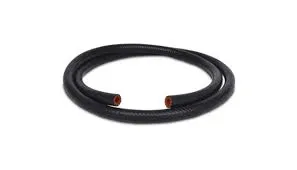Exploring the Importance of Brake Lines in Vehicle Safety and Performance
Nov . 18, 2024 12:57 Back to list
Exploring the Importance of Brake Lines in Vehicle Safety and Performance
Brake Lines Critical Components for Vehicle Safety
Brake lines are an essential component of a vehicle's braking system, playing a crucial role in ensuring safety on the road. These lines are responsible for transferring hydraulic fluid from the master cylinder to the brake calipers or wheel cylinders, allowing the vehicle to decelerate effectively and, ultimately, stop. Understanding the importance of brake lines, their construction, maintenance, and the potential issues that can arise is vital for every vehicle owner.
The brake line system typically consists of both rigid and flexible lines. Rigid brake lines, usually made of steel or copper, are used to connect the master cylinder to the flexible lines at the wheels. The flexible brake lines, commonly made from rubber or reinforced materials, accommodate the movement of the suspension while maintaining a secure hydraulic connection. The combination of these materials helps to withstand high pressures generated during braking while also providing the necessary flexibility for vehicle dynamics.
One of the most critical aspects of brake line maintenance is regular inspection for wear and tear. Over time, brake lines can degrade due to factors such as exposure to moisture, road salt, and extreme temperatures. A compromised brake line can lead to leaks, resulting in a loss of hydraulic pressure and ultimately failure of the braking system. Such failures can cause catastrophic accidents, making it imperative for drivers to routinely check their brake lines and replace them as necessary.
brake line

Potential warning signs of brake line issues include a spongy or soft brake pedal, reduced braking effectiveness, or the presence of fluid on the ground beneath the vehicle. Additionally, if you notice your brake warning light illuminating on the dashboard, it may indicate a problem with the braking system, including the brake lines. If any of these symptoms arise, immediate inspection by a qualified mechanic is crucial to prevent further complications.
When it comes to replacing brake lines, it is essential to use high-quality materials that meet or exceed manufacturer specifications. Using substandard lines can compromise the entire braking system, putting drivers and passengers at risk. Professional installation is recommended, as it ensures that the brake lines are correctly fitted and bled, eliminating air pockets that could affect braking performance.
In conclusion, brake lines are vital components that directly influence vehicle safety. Regular maintenance, timely inspections, and understanding the need for quality replacements can prevent brake system failures, ensuring that vehicles can stop effectively when needed. Every driver should prioritize the condition of their brake lines, as they are a key factor in achieving safe driving experiences. Remember, a well-maintained braking system is not just a convenience; it is a crucial element of road safety.
